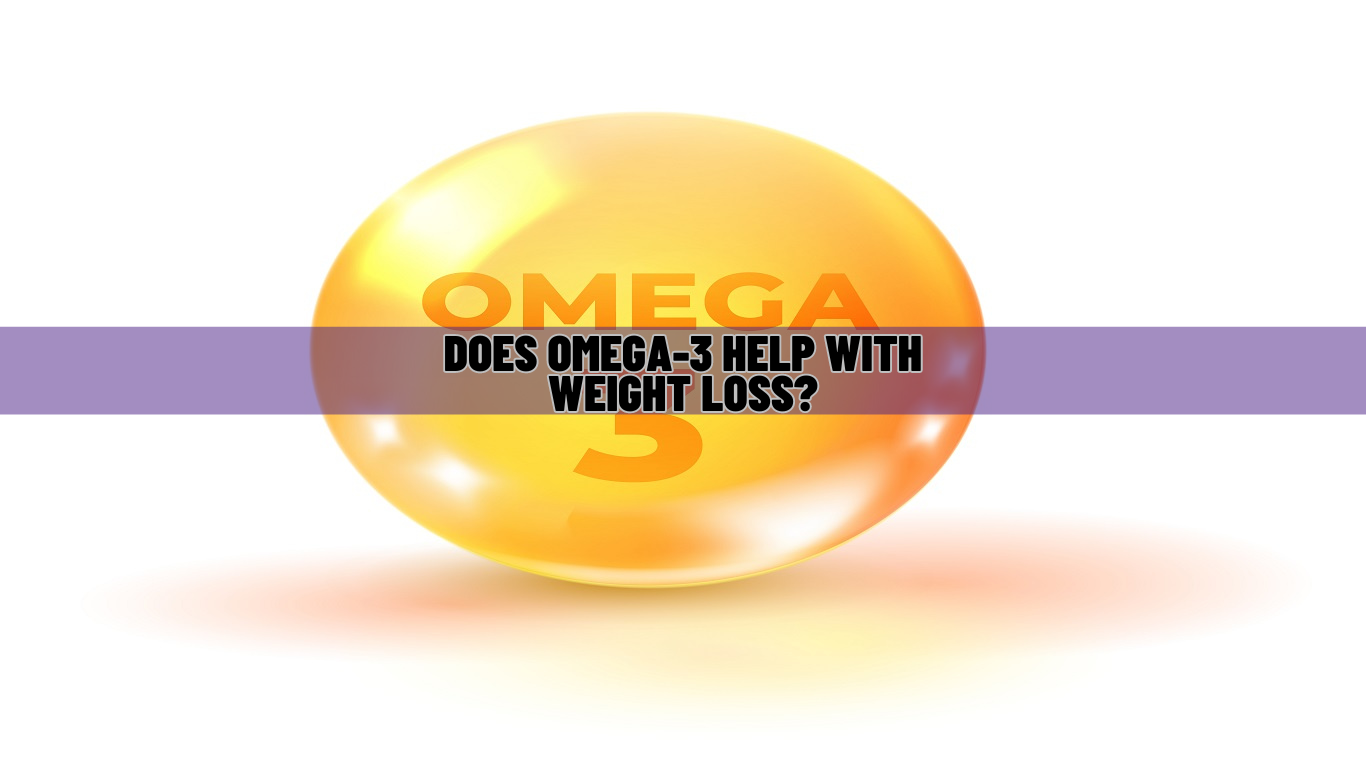Does Omega-3 Help With Weight Loss? Know Science

Most people look for natural ways to eliminate fat. With food playing a crucial role in the fitness world, Omega-3 has emerged as one of the popular weight loss supplements. Some dieticians and research professionals suggest that it can help shed excess pounds from the body easily and that consumption of Omega-3 can give a push to your workout efforts.
Found mainly in fish oil and a few other dietary sources, Omega-3 is known to offer a range of health benefits but, does it actually help reduce weight? Well, we understand that losing weight can be a serious struggle. That is why, in this article, we have delved into the various scientific studies surrounding Omega-3 to understand if there is any truth behind its weight loss claims, the safety aspects, and more. Let’s find out.
What Exactly Is Omega-3?

Omega-3 fatty acids, also known as Omega-3 oils are considered good fat, meaning the fat that is extremely beneficial for human health. It is a polyunsaturated fatty acid that is known to reduce bad cholesterol in the blood and help regulate weight. Now our body cannot produce omega-3 on its own which means that it needs to be sourced from outside either from the food or dietary supplements.
Omega-3 can be derived mainly from fatty fish including sardines, salmon, mackerel, herring, and oysters. Some of the other major food sources of Omega-3 fatty acids include flax seeds, chia seeds, soybeans, walnuts, cod liver oil, and eggs among others.
Omega-3 fatty acids come in different types but the most common ones are:
ALA, also considered as the essential fatty acid, is found in a broad range of plant-derived foods like flaxseeds, walnuts, Chia, and more. It is essential which means the body doesn’t produce it on its own and has to be taken from your diet.
EPA and DHA, on the other hand, may not necessarily be essential since our body can derive some of it from ALA. However, just about 2–10% of ALA gets converted to EPA and DHA which is quite low. However, you can also source it from seafood, fish oils, algae derivatives, etc.
Taking a closer look at the various studies, We found that Omega-3 can help with weight loss in the following ways:
Let’s take a look at the various scientific evidence against these claims.
Omega-3 And Weight Loss: Scientific Studies

Several studies have supported the fact that Omega-3 can support weight reduction in different ways.
Omega-3 And Appetite Suppression
For instance, a study was conducted in 2008 on the effect of omega-3 fatty acids in obese subjects. It demonstrated that its supplementation along with a calorie-restricted diet during the 8-week trial period increased satiety and lowered appetite. This is beneficial when you are on a calorie-deficit diet trying to shred the excess pounds off your body but keep feeling hungry.
Now, it is important to note here that Omega-3 may not have a similar effect say appetite suppression on everyone. We found a study where healthy adults took fish oil omega-3, they experienced an increased sensation of hunger. The research further suggested that this could be beneficial for those who have a nutritional deficiency because of less food intake. Another clinical trial also shows similar effects of Omega-3 stating that this could be beneficial for cancer patients with decreased appetite.
Interestingly, though, a significant study on the implications of Omega-3 on weight management shows that the appetite-modulatory effects of this nutrient can vary depending on the body weight status and diet. While in overweight humans it increases satiety and reduces hunger, it can improve appetite in non-obese ones. However, further studies are required to clarify how this works before coming to a concrete conclusion.
Omega-3 May Improve Metabolism
Aside from lowering food cravings, researchers believe that Omega-3 can also support metabolic functions which is an important factor in losing weight. A comprehensive study on the effect of Omega-3 fatty acid on resting and exercise metabolic rates found that supplementation of Omega-3 for 12 weeks raised the resting metabolic rate by 14%.
Another group of researchers found that Omega-3’s effect on metabolism may vary in individuals. Their study showed an increased resting metabolic rate in a group of men after Omega-3 consumption for 12 weeks although no change was noted in protein metabolism.
Meanwhile, We came across a small study showing a different effect of fish oil (a source of Omega-3) on weight loss. Strangely, the results from this intervention indicated that there was no change in the resting metabolic rate, however, Omega-3 did trigger fat oxidation. This led to a reduction in the fat mass in the body.
Reduces Abdominal Fat
This clinical intervention was specifically conducted by the researchers to investigate if Omega-3 has any effect on body fat loss given the emergence of a few controversial studies. 40 adults of varying ages were divided into two groups – Omega-3 treated and placebo in the weight reduction program with a low-calorie diet. Results indicated that while there was weight loss in both groups, Omega-3 supplementation showed an increased reduction of fat mass in the abdominal area of the overweight volunteers.
The study proves that omega-3 can help melt down the fat from difficult areas such as the midsection when combined with a low-calorie diet and regular exercise.
Improves The Effects Of Exercise
Yet another effect of Omega-3 fatty acids is making exercise more impactful. In a 12-week study, as also presented earlier, the scientists found that regular supplementation of omega-3 raised exercise-induced fat metabolism significantly.
Aside from that, we have other scientific data supporting this. The findings from research conducted in 2007 suggested that combining a healthy and active lifestyle with long-chain Omega-3 fatty acid supplementation improves metabolic health, and body composition and also reduces the risks of heart issues.
Is Omega-3 Safe To Consume
Omega-3 is one of the vital components needed by the body and is considered generally safe for consumption when sourced from food. However, taking anything in excess can cause adverse effects on the body so it is important to keep it in moderation particularly if you are taking Omega-3 supplements. The daily recommended dose as suggested by various health organizations is 1 to 2 grams per day.
Moreover, if you are under medication it is best to consult your healthcare practitioner if you are planning on taking Omega-3 as a supplement. This will prevent any harmful interaction with the components present in the medicines.
In general, you should keep an eye on side effects like nausea, stomach upset, and indigestion but this is mainly for sensitive individuals.
Conclusion
All the studies that we discussed above clearly indicate that Omega-3 can help promote weight loss in multiple different ways. It triggers some of the key factors in weight loss like controlling appetite, improving metabolic health, and enhancing the exercise effects on the body. However, it is important to note that Omega-3 alone will not bring significant changes in your body weight. It works best when blended with regular exercise and a calorie-conscious diet.
Weight loss, however, isn’t the only benefit that Omega-3 offers; it is associated with holistic health improvement that includes reducing bad cholesterol, maintaining eye health, promoting skin benefits, and reducing risks associated with cardiovascular diseases. Therefore, if you are planning on including Omega-3 in your diet, then rest assured that it is a good idea.
